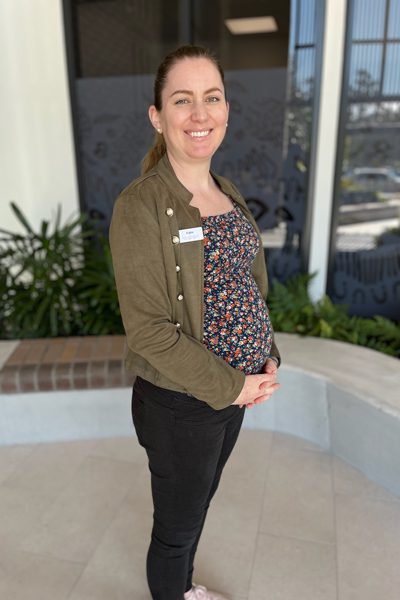Taking action early to identify cognitive decline in family members

Community and Oral Health Senior Neuropsychologist Katie Veretennikoff brings a wholistic approach to health and well wellbeing of elderly patients with a cognitive impairment.
Identifying and treating cognitive decline in elderly patients can often be tricky and at the time, difficult to reveal for many reasons.
For older persons, it is often only when family members notice something wrong, that cognitive decline or impairment is identified and the onset of something more serious gets diagnosed.
Community and Oral Health Senior Neuropsychologist Katie Veretennikoff said there were many reasons why cognitive decline was often overlooked or simply missed in the community.
“It is often just dismissed as part of people getting older,” she said. “However, the subject is becoming more relevant as our population ages.
“Cognitive decline isn’t something that is relevant for many young people unless they have a stroke or have an acquired brain injury, so it doesn’t get the attention it deserves.
“For the older person, it is important that we bring a wholistic approach to health and wellbeing, and not just focus on physical symptoms.
“It is critical that we pick up cognitive decline early and support people to have a longer, more healthy life.
“By doing it well, we also give the patient and their family an understanding of what is going on so that they can plan appropriately.”
Katie, who studied a Bachelor of Psychological Science (with honours) and completed her Doctor of Psychology (in Neuropsychologist and Clinical Psychology) at the University of Queensland, currently works for the Healthy Ageing Assessment and Rehabilitation Team (HAART) at Kallangur.
“It is a very niche area for a psychologist to become a neuropsychologist, but I have always had an interest in the brain and its impact on behaviour, emotions and how we function,” she said.
“I also enjoy the diagnostic type of work, as at times, it’s like figuring out a puzzle.”
As part of her role, Katie links in with other health professionals at HAART, including dieticians, occupational therapists, geriatricians, social workers and physiotherapists, to identify older persons needing cognitive support.
“It can be tricky when diagnosing cognitive decline as the family is saying that there is an issue, and but the patient doesn’t see a problem with their cognition,” she said.
“In the case of Alzheimer’s, it effects the memory so that the older person doesn’t remember things like conversations.
“They lack the insight or don’t see that their memory loss is potentially a problem.”
The Healthy Ageing Assessment and Rehabilitation Team (HAART) has delivered thousands of appointments and supports hundreds of patients each year to get their life back on track.
The service aims to improve Moreton Bay’s older people’s wellbeing, functional capacity, independence, and quality of life after a significant health event or injury.
The service provides rehabilitation for patients 65-years and older (or older than 50 years for Aboriginal and Torres Strait Islander people) with rapid assessment, care pathway planning and rehabilitation.
HAART can be accessed by a GP referral or phone 3285 0066 (7 days a week) to speak to an intake clinician who can assist.
